7 start with E start with E
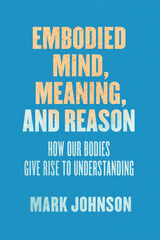
A brief account of Johnson’s own intellectual journey, through which we track some of the most important discoveries in the field over the past forty years, sets the stage. Subsequent chapters set out Johnson’s important role in embodied cognition theory, including his cofounding (with George Lakoff) of conceptual metaphor theory and, later, their theory of bodily structures and processes that underlie all meaning, conceptualization, and reasoning. A detailed account of how meaning arises from our physical engagement with our environments provides the basis for a nondualistic, nonreductive view of mind that he sees as most congruous with the latest cognitive science. A concluding section explores the implications of our embodiment for our understanding of knowledge, reason, and truth. The resulting book will be essential for all philosophers dealing with mind, thought, and language.

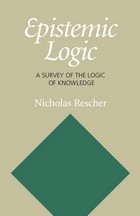
Epistemic logic is the branch of philosophical thought that seeks to formalize the discourse about knowledge. Its object is to articulate and clarify the general principles of reasoning about claims to and attributions of knowledge. This comprehensive survey of the topic offers the first systematic account of the subject as it has developed in the journal literature over recent decades.
Rescher gives an overview of the discipline by setting out the general principles for reasoning about such matters as propositional knowledge and interrogative knowledge. Aimed at graduate students and specialists, Epistemic Logic elucidates both Rescher's pragmatic view of knowledge and the field in general.
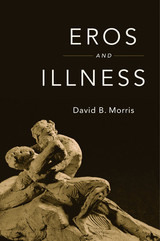
Susan Sontag once described illness as “the night-side of life.” When we or our loved ones fall ill, our world is thrown into darkness and disarray, our routines are interrupted, our deepest beliefs shaken. The modern regime of hyper-logical biomedicine offers little solace when it comes to the effects of ill health on our inner lives. By exploring the role of desire in illness, Eros and Illness offers an alternative: an unconventional, deeply human exploration of what it means to live with, and live through, disease.
When we face down illness, something beyond biomedicine’s extremely valuable advances in treatment and prevention is sorely needed. Desire in its many guises plays a crucial part in illness, David Morris shows. Emotions, dreams, and stories—even romance and eroticism—shape our experiences as patients and as caregivers. Our perception of the world we enter through illness—including too often a world of pain—is shaped by desire.
Writing from his own heartbreaking experience as a caretaker for his wife, Morris relates how desire can worsen or, with care, mitigate the heavy weight of disease. He looks to myths, memoirs, paintings, performances, and narratives to understand how illness is intertwined with the things we value most dearly. Drawing on cultural resources from many centuries and media, Eros and Illness reaches out a hand to guide us through the long night of illness, showing us how to find productive desire where we expected only despair and defeat.
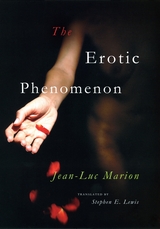
While humanists have pondered the subject of love to the point of obsessiveness, philosophers have steadfastly ignored it. One might wonder whether the discipline of philosophy even recognizes love. The word philosophy means “love of wisdom,” but the absence of love from philosophical discourse is curiously glaring. So where did the love go? In The Erotic Phenomenon, Jean-Luc Marion asks this fundamental question of philosophy, while reviving inquiry into the concept of love itself.
Marion begins his profound and personal book with a critique of Descartes’ equation of the ego’s ability to doubt with the certainty that one exists—“I think, therefore I am”—arguing that this is worse than vain. We encounter being, he says, when we first experience love: I am loved, therefore I am; and this love is the reason I care whether I exist or not. This philosophical base allows Marion to probe several manifestations of love and its variations, including carnal excitement, self-hate, lying and perversion, fidelity, the generation of children, and the love of God. Throughout, Marion stresses that all erotic phenomena, including sentimentality, pornography, and even boasts about one’s sexual conquests, stem not from the ego as popularly understood but instead from love.
A thoroughly enlightening and captivating philosophical investigation of a strangely neglected subject, The Erotic Phenomenon is certain to initiate feverish new dialogue about the philosophical meanings of that most desirable and mysterious of all concepts—love.
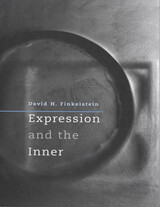
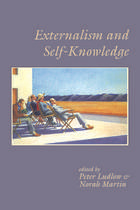
The selected works presented in this volume, some previously published, some new, are representative of this debate and open up new questions and issues for philosophical investigation, including the connection between externalism, self-knowledge, epistemic warrant, and memory.
READERS
Browse our collection.
PUBLISHERS
See BiblioVault's publisher services.
STUDENT SERVICES
Files for college accessibility offices.
UChicago Accessibility Resources
home | accessibility | search | about | contact us
BiblioVault ® 2001 - 2024
The University of Chicago Press









